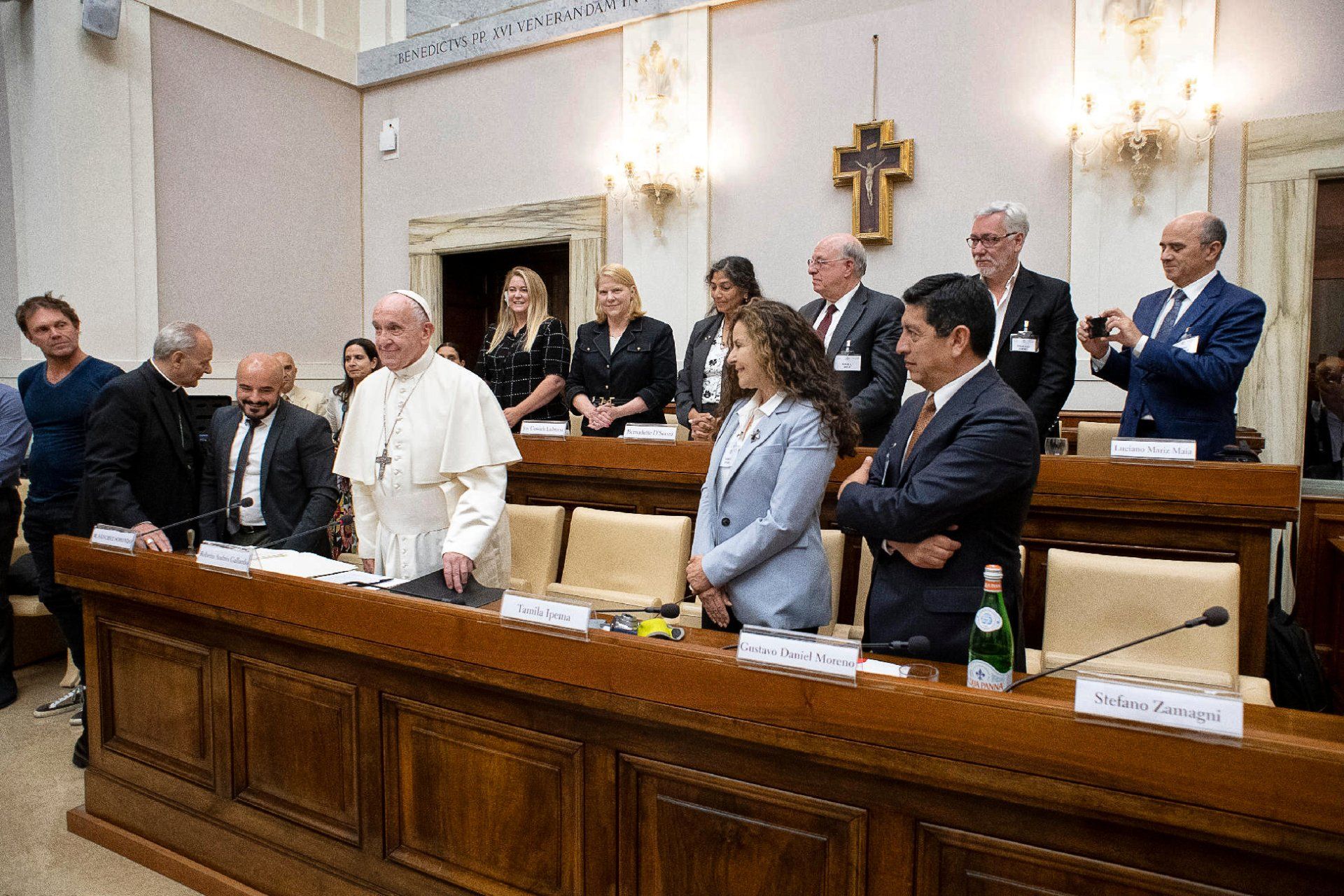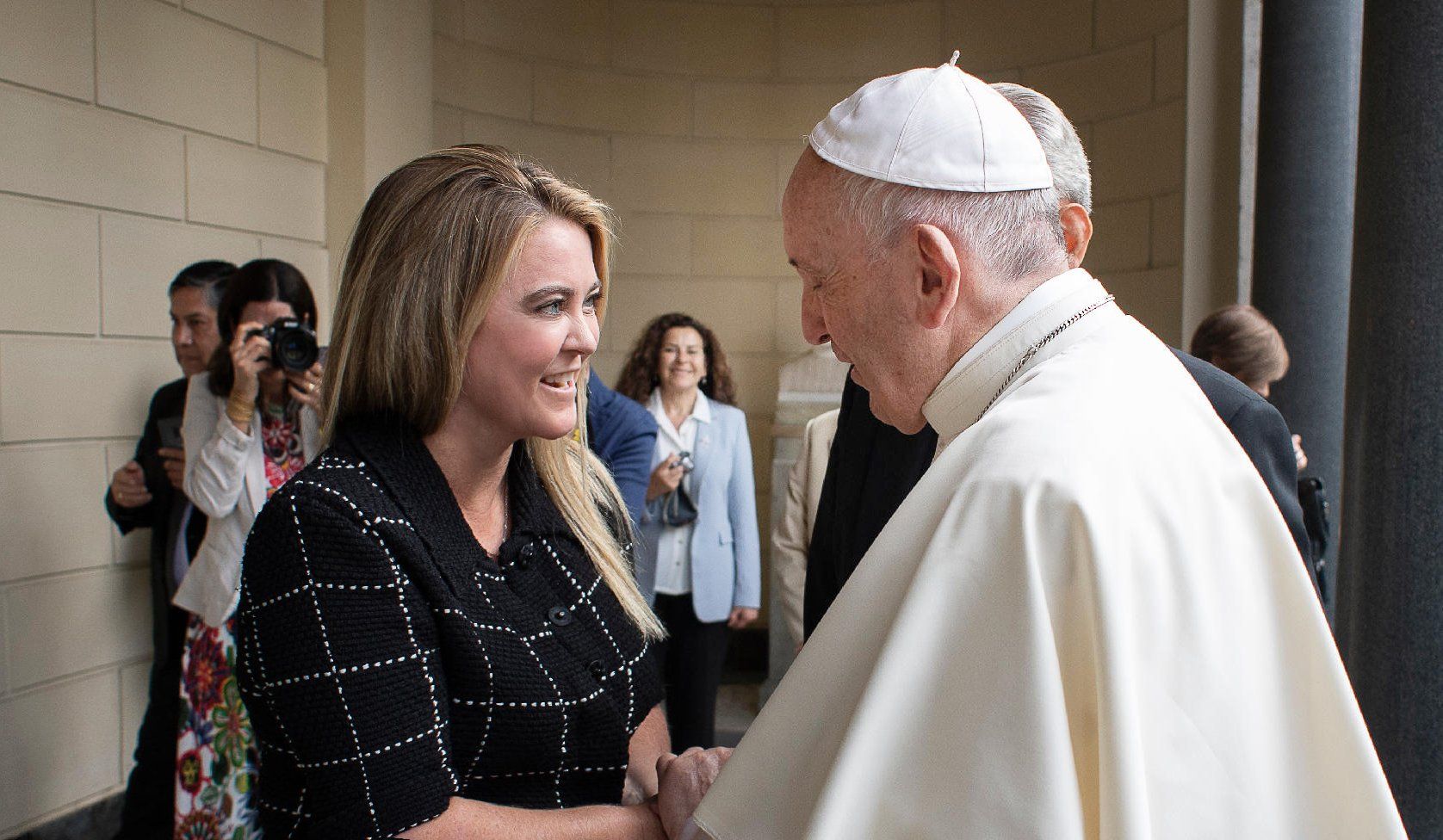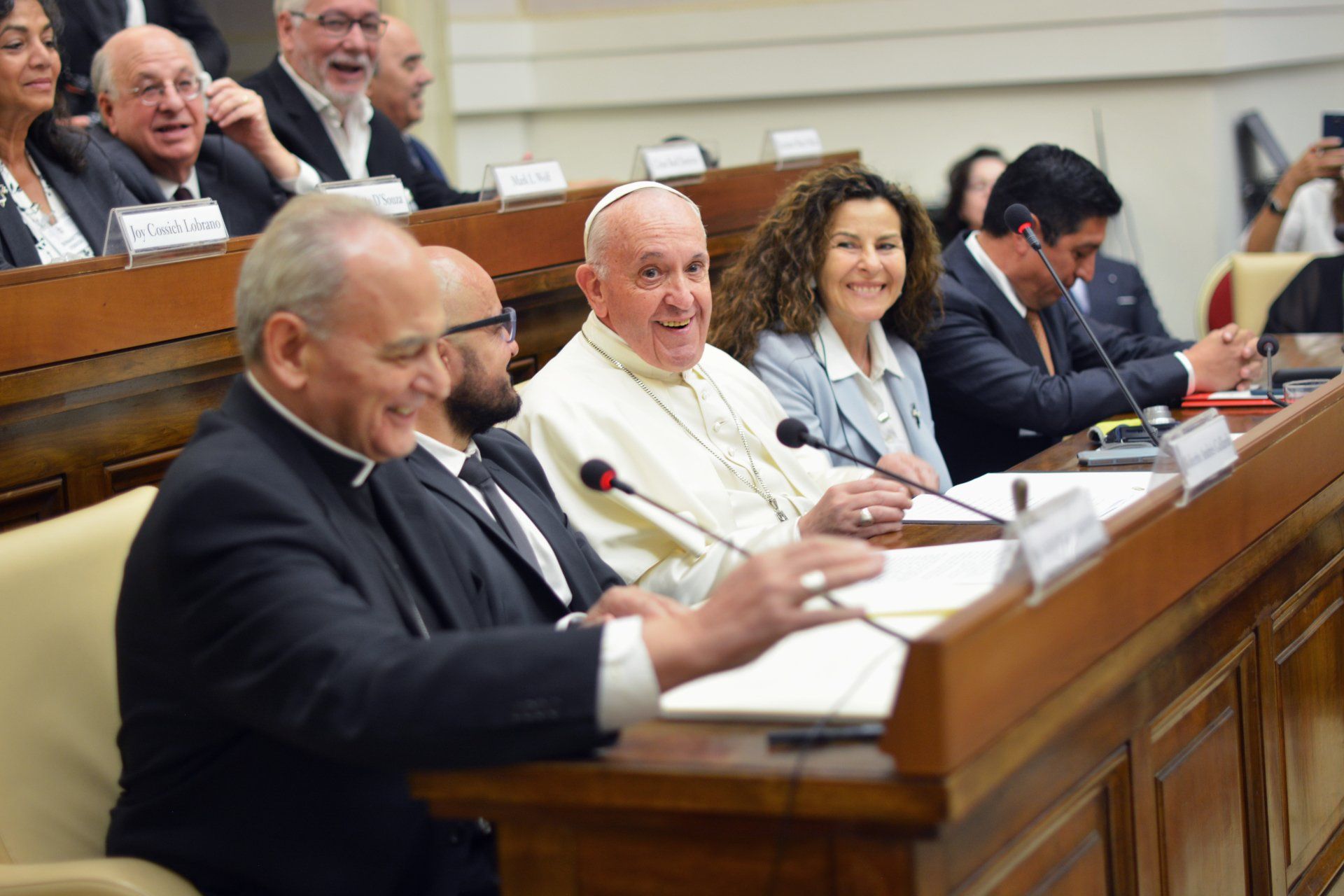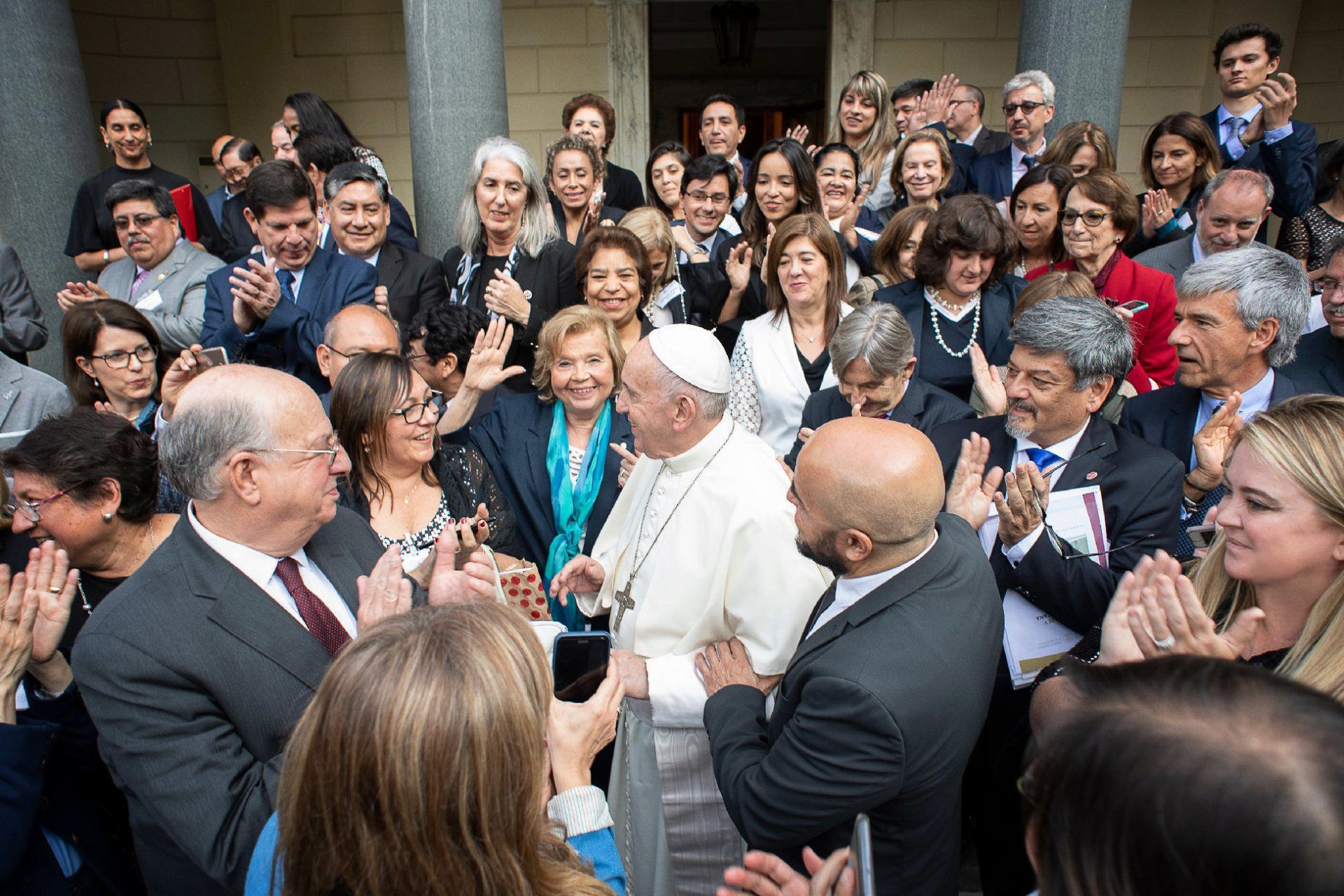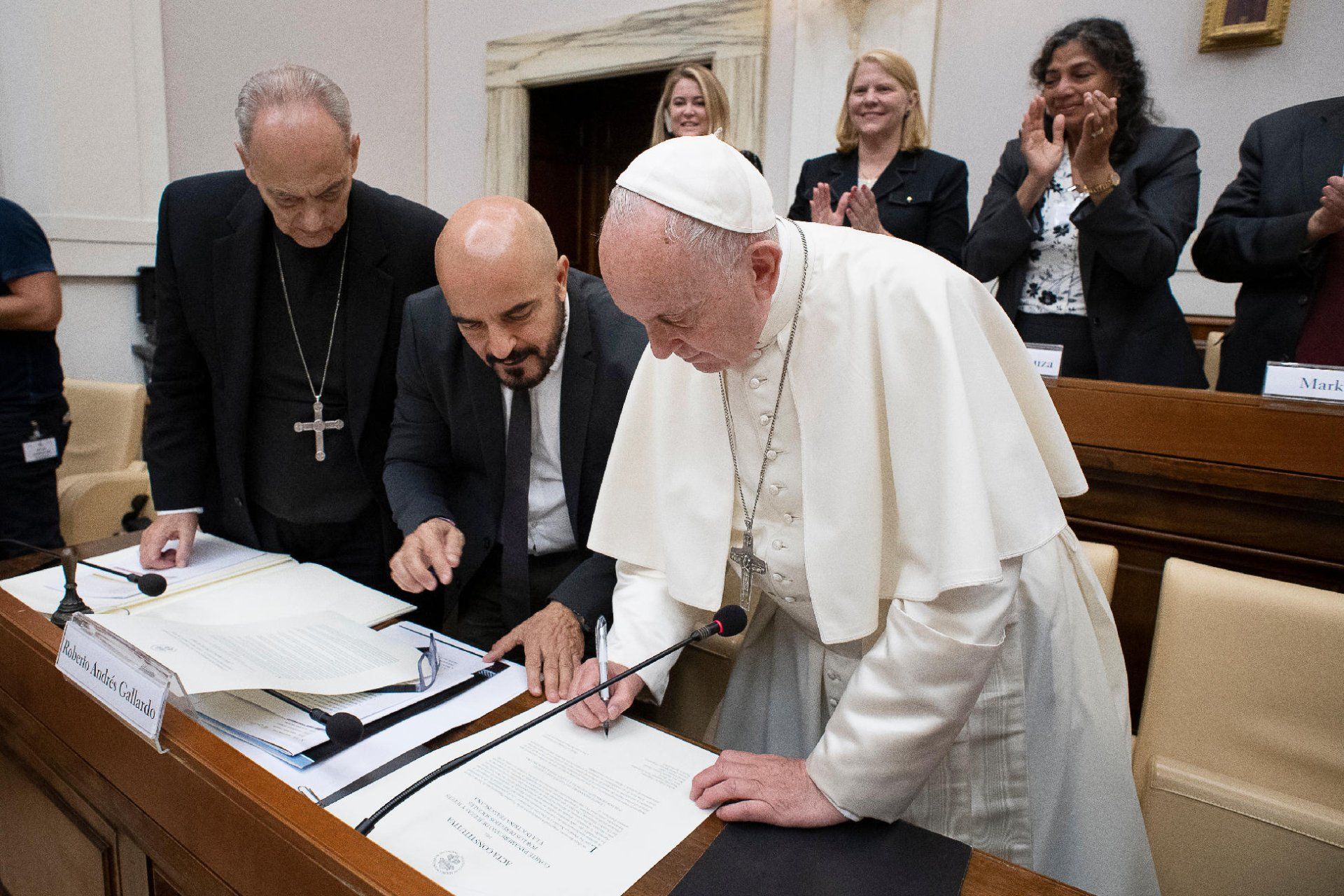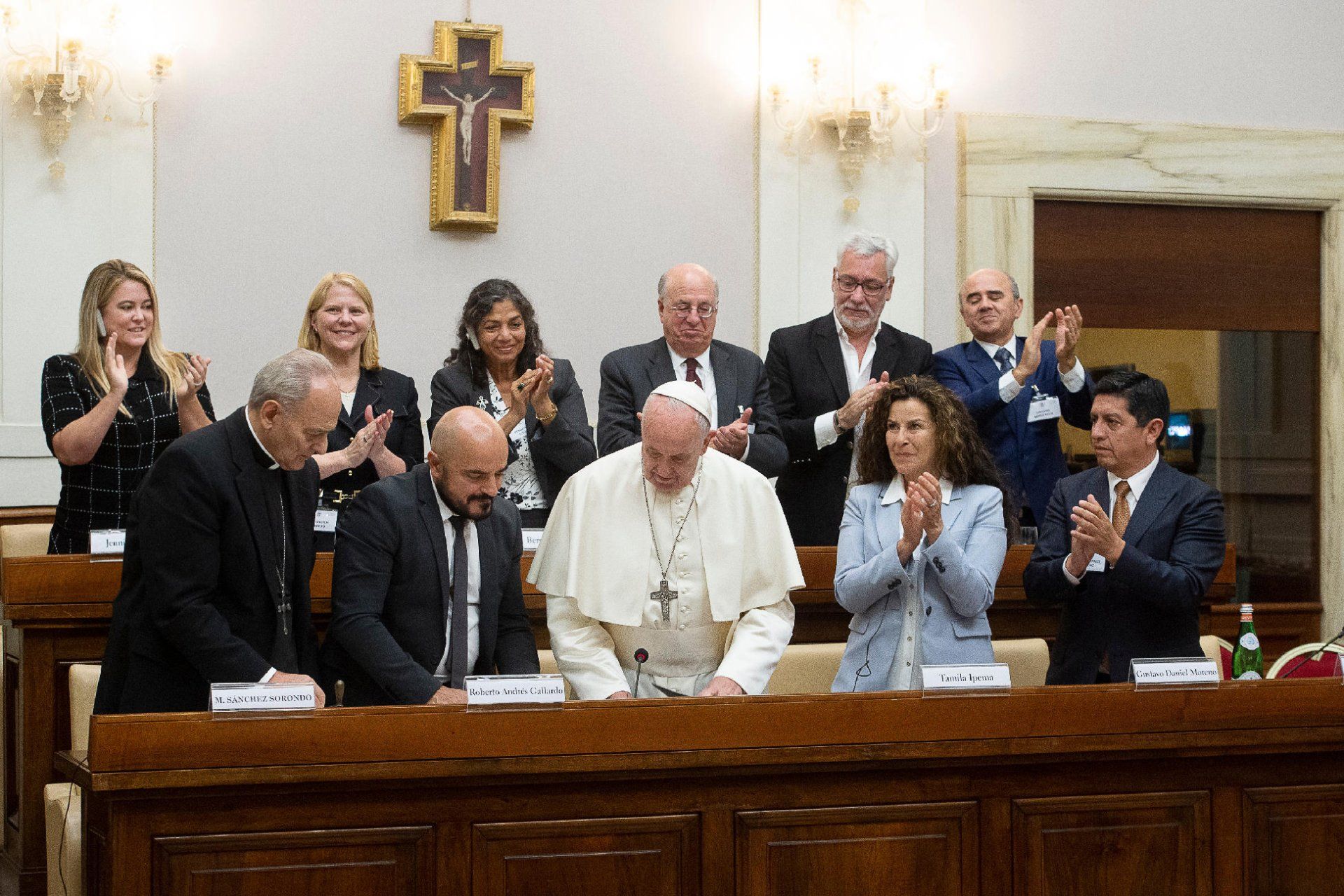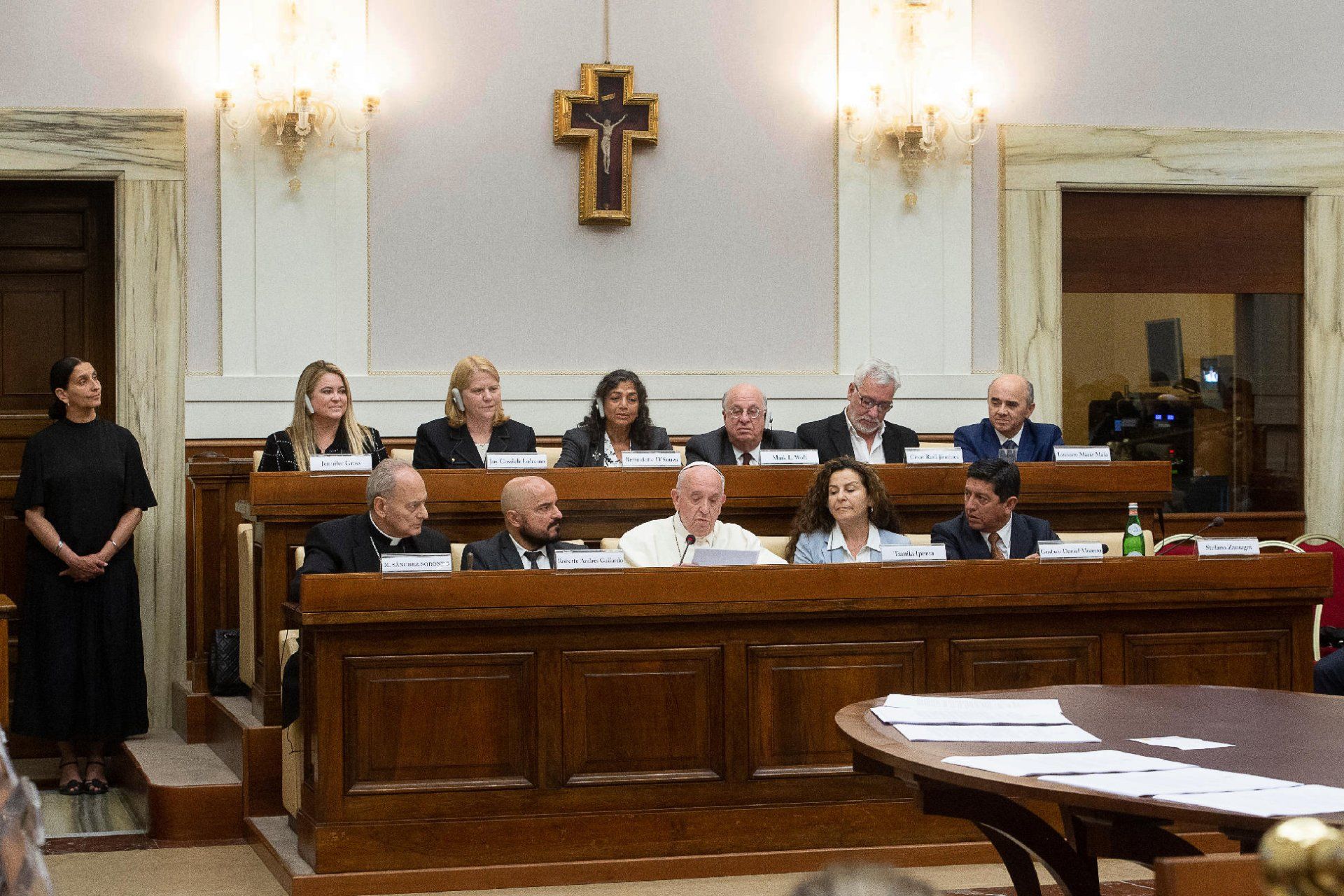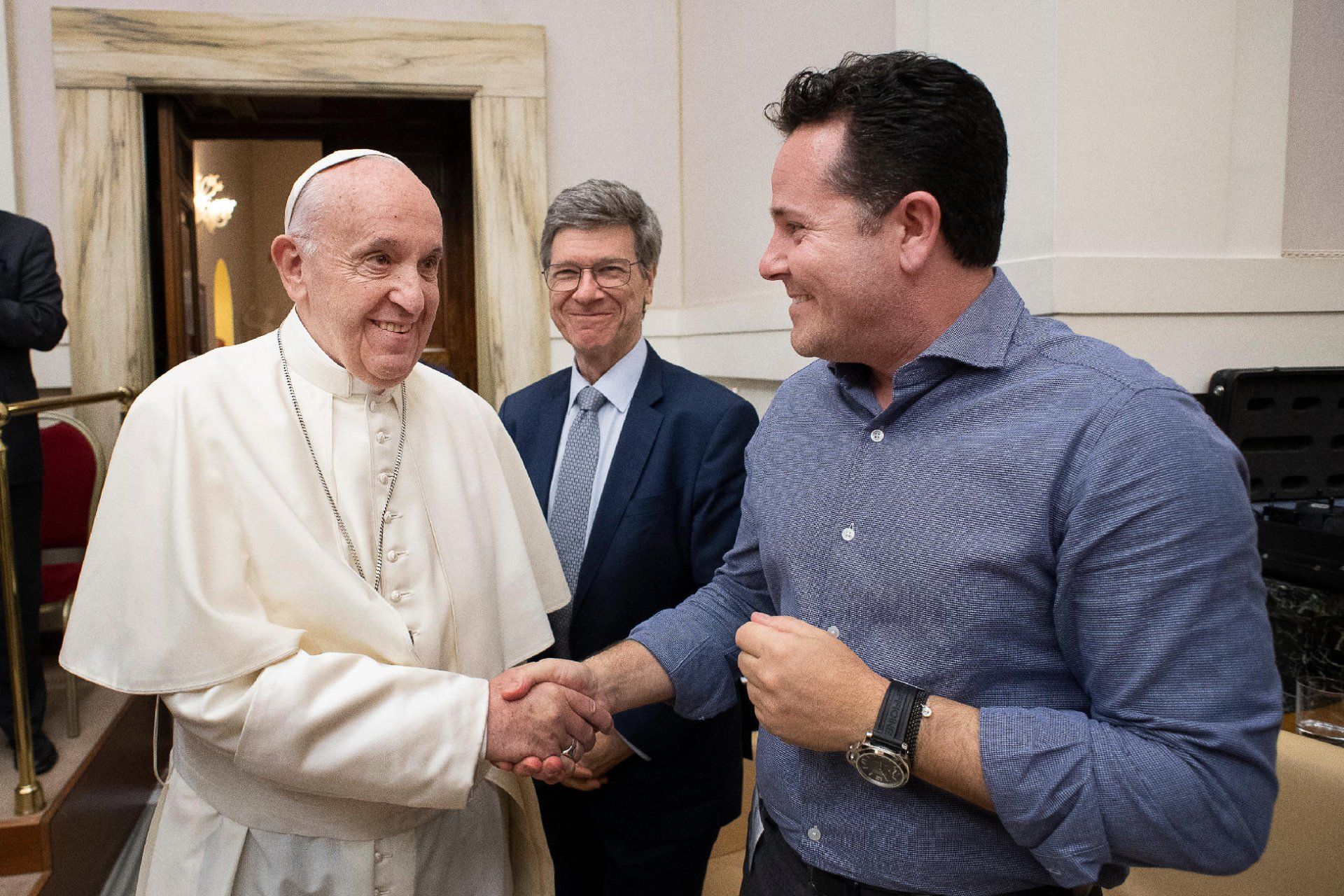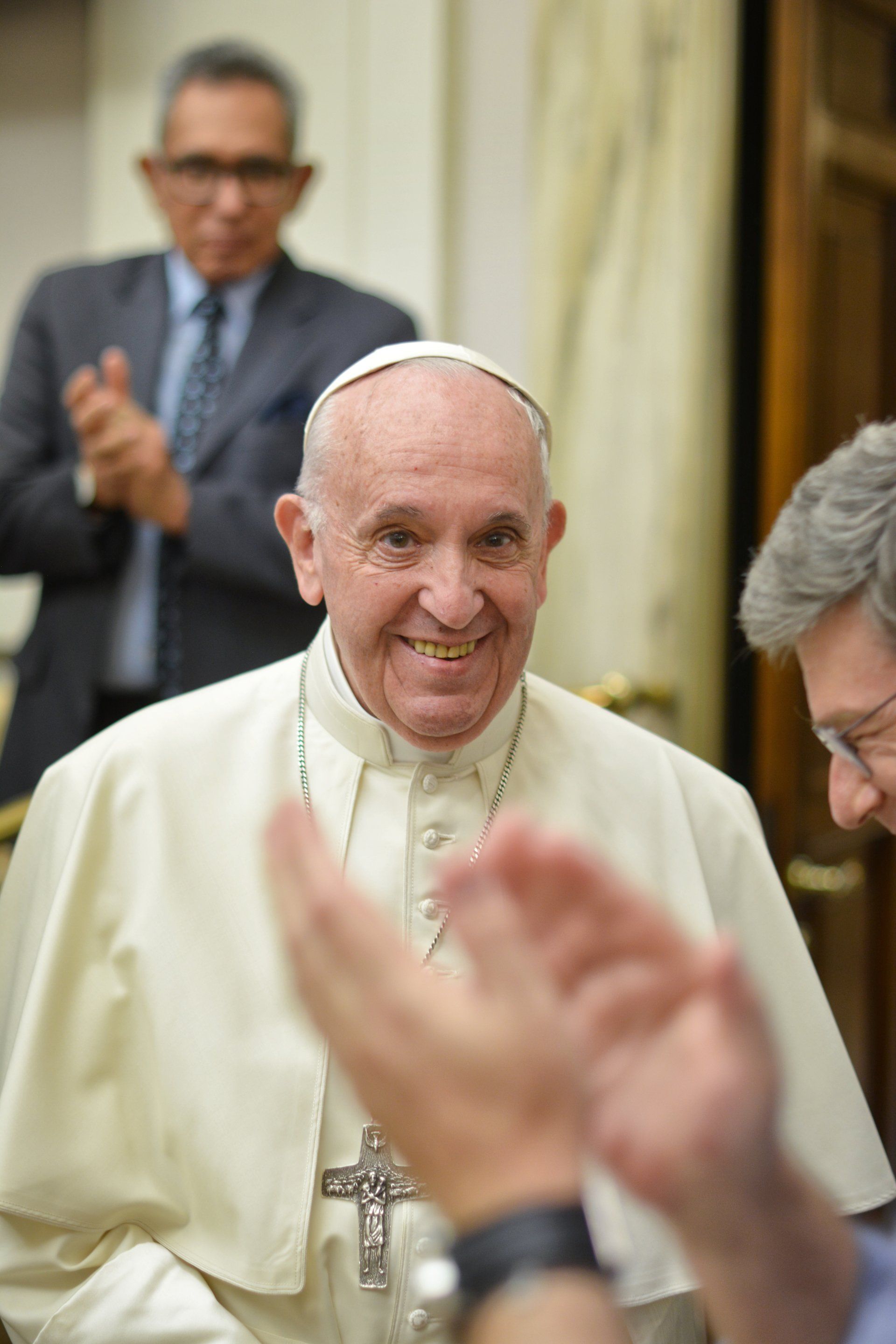Blue Chip Foundation founder Jennifer Gross traveled to Casina Pío IV to provide support and participate in the Pan-American Judges’ Summit on Social Rights and Franciscan Doctrine June 3 and June 4, 2019. The summit was organized by the Pontifical Academy of Social Sciences, now headed by Professor Stefano Zamagni, and held at the Vatican.
The Pan-American Judges’ Summit on Social Rights and Franciscan Doctrine
The Pan-American Judges’ Summit on Social Rights and Franciscan Doctrine is the second of its kind – the first was held during June 2018 in Buenos Aires.
The summit, which involved more than 100 magistrates from Ecuador, Colombia, Mexico, Chile and several other Pan-American countries, addressed the need to defend and protect humans’ social rights throughout the world.
Gross began the event with a speech addressing and thanking the judges for attending, as well as outlining the purpose of the conference.
“Together we can create best practices to alleviate poverty, end hunger, provide health care for all, ensure quality and free education including university level education for all,” Gross said. “We must ultimately aim to ensure equal pay for all within a workforce that respects equality of race, culture, sexuality and gender. Only then can we have a productive economy and a workforce filled with individuals fulfilling their dreams and realizing their potential.”
Human and Social Rights
The summit addressed the need to create legislation that preserves human rights, as well as determining how to create support for judges facing political pressure when it comes to social rights. Social injustice is ingrained in many societies, and judges face tremendous amounts of resistance when they attempt to make changes.
The group aimed to determine how to implement the “Three Ts”: tierra, techo y trabajo, or land, housing and work as a means of social justice. It also addressed issues such as how to challenge budgetary constraints that countries operate under, overcoming political pressures many magistrates face, and creating a global movement that defends and protects humans’ social rights.
Judge Tamila Ipema, president of the National Association of Women Judges, implored the committee to defend judges who hold fast to morality, citing the work the state of California has done.
“In California, our judges have come together and created a defense fund to help judges who are under attack by special interest groups who want to remove certain judges for unjust reasons. As judges, we work together and stand up for each other if anyone unjustly challenges one of our judges in California. We all need to stand up together to protect the integrity of our justice system,” Ipema said. “There can be no justice if judges do not have independence to do the right thing under the law. Being a judge today is a dangerous job. We must recognize the courage of the judges who are doing the right thing by not giving in to the pressures; judges who remain independent, and we must defend them when they are attacked.”
The summit’s overarching goal was to consolidate a permanent Pan-American Board of Judges in Defense of Social Rights. The board can help coordinate efforts to optimize policies centered on people’s social, economic and cultural rights, as well as promote training and provide assistance to help defend judges who are politically pressured to violate people’s rights.
Part of that is equal access to justice, as noted by Judge Bernadette D’Souza of New Orleans, Louisiana.
“It is our responsibility and ethical duty as judges to ensure that low-income litigants are able to navigate the court system in order to avail themselves of the relief they deserve. By depriving our poorest citizens of civil legal services, we reinforce an inequitable system that inhibits both individual and community progress. Promoting equal access to civil legal aid for all is an essential step to creating communities that support our most vulnerable members of society and provide justice for all,” said D’Souza.
In her own speech, Gross also acknowledged the need to regulate clean water, acknowledge climate change and create legislation to mitigate environmental damage, and put systems in place to deal with the catastrophic natural disasters climate change will bring.
